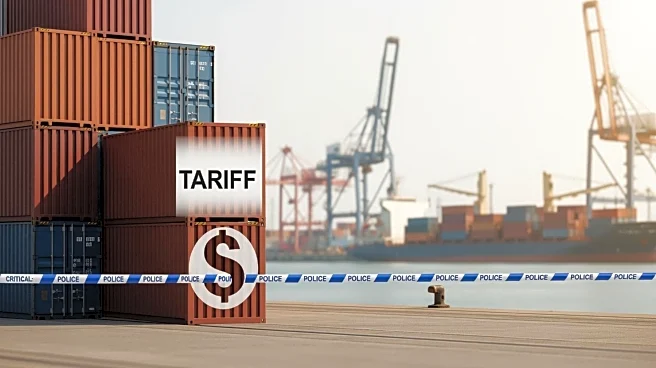What's Happening?
Atlantic Container Line (ACL), a major shipping firm, faces a $34 million annual tariff bill due to a reclassification of its ships under the Trump administration's updated Section 301 rules. The new classification considers
ACL's vessels as 'vehicle carriers' rather than 'container ships,' resulting in higher fees. The tariffs are applied five times per year for each U.S. port call, significantly increasing operational costs for ACL, which primarily transports containers.
Why It's Important?
The tariff changes could force ACL to halt its U.S.-linked business, impacting transatlantic trade routes and potentially leading to higher shipping costs for U.S. businesses. The reclassification highlights the complexities of trade regulations and their impact on domestic companies. It raises concerns about the fairness of tariff applications and the potential for unintended consequences on U.S. economic interests.
What's Next?
ACL may seek to challenge the tariff classification or negotiate with U.S. trade representatives to find a resolution. The situation could prompt broader discussions on trade policy and its impact on U.S. businesses, particularly those involved in international shipping. Stakeholders may advocate for clearer guidelines and fairer tariff applications to support domestic companies.









